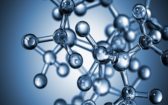Hematopoietic Stem Cell Gene Editing: New Avenues for Treatment
Hematopoietic stem cell (HSC) gene editing holds immense promise for treating genetic blood disorders. By precisely modifying HSCs, researchers aim to correct disease-causing mutations and restore normal blood cell production. This innovative approach offers potential cures for diseases like sickle cell anemia and thalassemia.













